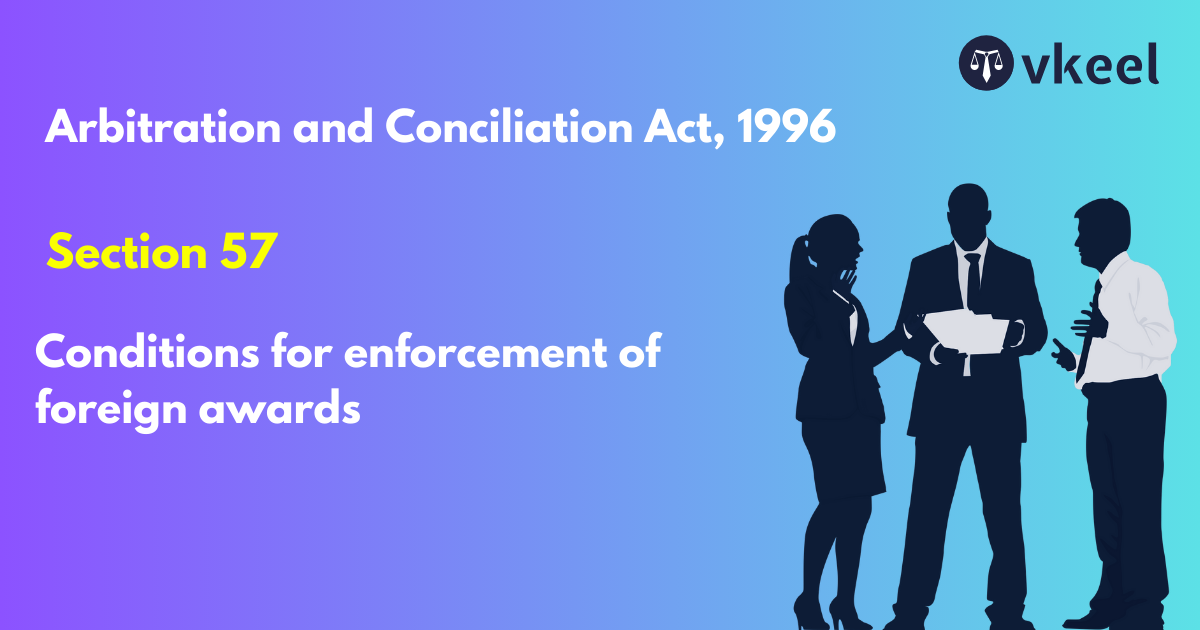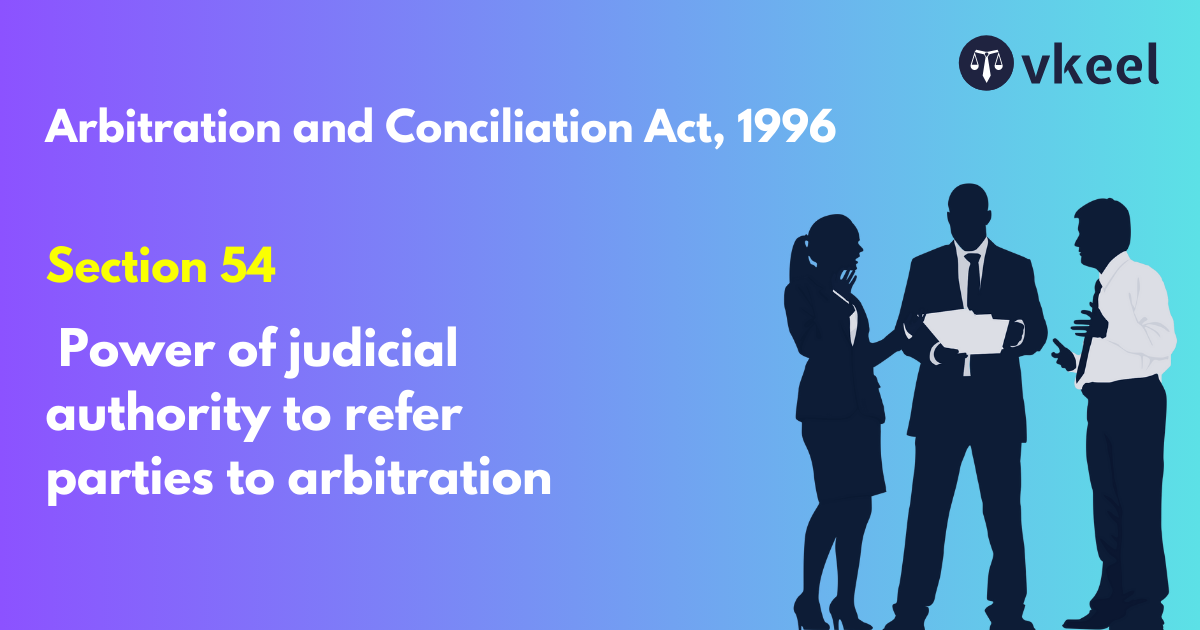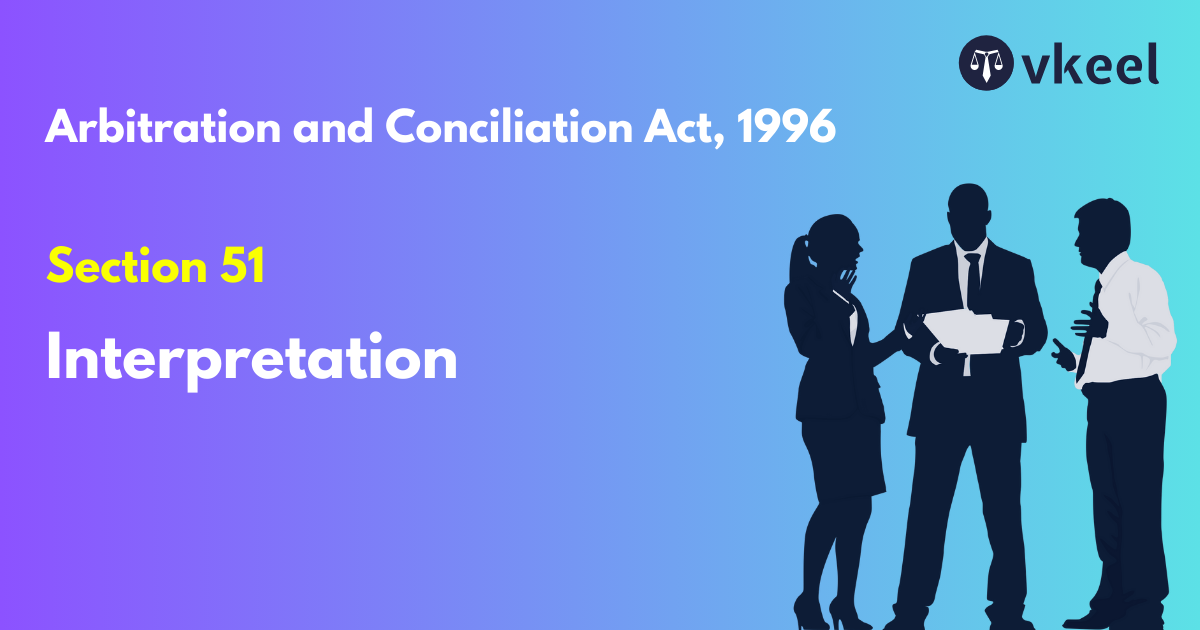Section 7: Arbitration and Conciliation Act, 1996
By Nivedita Dhiman
Table of Contents
Introduction
An arbitration agreement possesses a very wide scope in its applicability furthermore it may be in the form of an arbitration clause in a contract or exist as a distinctive agreement between the respective parties to the contract.
There can be instances where it may be contained, inter-alia in a document signed by the requisite parties or in exchange of letters, telex, telegrams or any other means of communication which can be proved as the evidence to the said agreement.
Any judicial authority or a court of law does not hold the power to modify or to make changes in the arbitration agreement between the parties. If in a case, the arbitration clause elucidates the appointment of two arbitrators, the said condition is held valid as the aforesaid satisfies the requirements which have been entailed in Section 7 of the Arbitration and Conciliation Act, 1996.
Section 7 of The Arbitration and Conciliation Act
Arbitration agreement. —
(1) In this Part, “arbitration agreement” means an agreement by the parties to submit to arbitration all or certain disputes which have arisen or which may arise between them in respect of a defined legal relationship, whether contractual or not.
(2) An arbitration agreement may be in the form of an arbitration clause in a contract or in the form of a separate agreement.
(3) An arbitration agreement shall be in writing.
(4) An arbitration agreement is in writing if it is contained in—
(a) a document signed by the parties;
(b) an exchange of letters, telex, telegrams or other means of telecommunication 1 [including communication through electronic means] which provide a record of the agreement; or
(c) an exchange of statements of claim and defense in which the existence of the agreement is alleged by one party and not denied by the other.
(5) The reference in a contract to a document containing an arbitration clause constitutes an arbitration agreement if the contract is in writing and the reference is such as to make that arbitration clause part of the contract.
Landmark Judgements
Thomas Press India Ltd. v National Capital Territory of India, 1999
No particular form was needed to bring into existence an arbitration agreement, nor was it necessary that words like “arbitrator” or “arbitration” need be mentioned in an arrangement where parties had really intended to submit their differences or disputes to arbitration. No particular form can be laid down as universal for framing an arbitration agreement, but this much is certain that words used for the purpose must be words of choice and determination to go to arbitration and not problematic words of mere possibility.
Chhabel Dass & Co v State of Uttar Pradesh, 1977
An agreement of arbitration implies an agreement to get a dispute adjudicated by a named forum rather than in the ordinary civil court. The binding character of the award on all the parties to the arbitration agreement is thus an essential ingredient to an arbitration agreement, and unless it is so made, the agreement cannot be deemed to be an arbitration agreement.
Essentials of Arbitration Agreement
The essential elements of an arbitration agreement are:
(i) There must be a present or future difference in connection with some contemplated affairs.
(ii) There must be the intention of the parties to settle such differences by a private tribunal.
(iii) The parties must agree in writing to be bound by the decision of such tribunal.
(iv) The parties must be ad idem
Scope
The Supreme Court has laid the following principles as to the scope of the arbitration clause:
1. An arbitration clause is a collateral term of a contract as distinguished from its substantive terms; but nonetheless it is an integral part of it;
2. However, comprehensive the terms of an arbitration clause may be, the existence of the contract is a necessary condition for its operation, it perishes with the contract;
3. The contract may be non-set in the sense that it never came legally into existence or it was void ab initio,
4. Though the contract was validly executed, the parties may put an end to it as if it had never existed and substitute a new contract for it solely governing their rights and liabilities thereunder,
5. In the former case, if the original contract has no legal existence, the arbitration clause also cannot operate, for along with the original contract, it is also void; in the latter case, as the original contract is extinguished by the substituted one, the arbitration clause of the original contract perishes with it, and
6. Between the two falls, many categories of disputes in connection with a contract, such as the question of repudiation, frustration, breach etc. In those cases, it is the performance of the contract that has come to an end, but the contract is still in existence for certain purposes in respect of disputes arising under it or in connection with it. As the contract subsists for certain purposes, the arbitration clause operates in respect of these purposes
The aforementioned guidelines regarding the scope were laid down by the Supreme Court in the case of Union of India v Kishorilal Gupta, 1959.
Conclusion
The art of arbitration is a speedy way to deliver justice to the concerned disputed parties.
It is crucial to differentiate between arbitration agreement on one hand and the contractual provisions for the valuation appraisement and certification on the other, since in the latter cases, it has been held that the provisions of the arbitration act are not applicable.
Disclaimer:
The information provided in the article is for general informational purposes only, and is not intended to constitute legal advice or to be relied upon as a substitute for legal advice. Furthermore, any information contained in the article is not guaranteed to be current, complete or accurate. If you require legal advice or representation, you should contact an attorney or law firm directly. We are not responsible for any damages resulting from any reliance on the content of this website.












